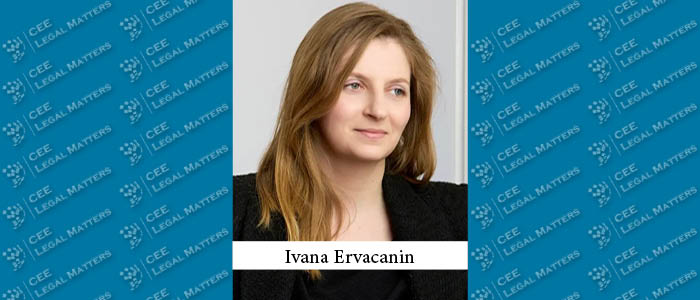In the realm of modern politics, where every move is meticulously calculated and every tactic scrutinized, the strategic employment of intellectual property (IP) has emerged as a potent tool for political parties. From catchy slogans to iconic logos, intellectual property has become integral to shaping public perception and garnering support during election seasons. However, the fine line between legitimate use and exploitation of IP often blurs, raising ethical and legal questions about the (ab)use of intellectual property by political entities.
Political parties across the globe have recognized the power of intellectual property in crafting their identities and messages. A prime example is the utilization of trademarks to protect party symbols and slogans from unauthorized use by opponents or commercial entities. These trademarks not only safeguard the party’s brand but also enable them to control its narrative in the public sphere.
One common tactic employed by political parties is the appropriation of popular culture references or existing trademarks to resonate with voters. This could range from incorporating elements of well-known brands into campaign materials to leveraging catchphrases from movies, songs, or memes. While such tactics may initially generate attention and engagement, they can also spark controversy and legal challenges if perceived as copyright infringement or misleading appropriation.
New possibilities of the digital era
Moreover, the digital age has opened up new avenues for political parties to exploit intellectual property. Social media platforms serve as battlegrounds where parties seek attention through memes, videos, and other content. However, this often involves repurposing copyrighted material without proper authorization, raising concerns about fair use and the infringement of creators’ rights.
Another contentious issue is the use of intellectual property in political advertising. Parties frequently commission original artwork, music, or slogans for their campaigns, but conflicts may arise if these creations resemble existing works or infringe upon the rights of artists. Additionally, the dissemination of political ads through various channels, including television, radio, and online platforms, complicates the legal landscape surrounding intellectual property rights.
Furthermore, the rise of deepfake technology introduces a new dimension to the (ab)use of intellectual property in politics. Deepfakes, which involve the manipulation of audio and video to depict individuals saying or doing things they never actually did, pose a significant threat to the integrity of elections. Political adversaries could use deepfakes to spread misinformation, discredit opponents, or manipulate public opinion, blurring the line between reality and fabrication.
In response to these challenges, lawmakers and regulatory bodies are grappling with how to address the (ab)use of intellectual property in political contexts. Strengthening copyright laws, enhancing enforcement mechanisms, and promoting digital literacy are among the proposed measures to safeguard intellectual property rights and preserve the integrity of democratic processes.
Moreover, ethical considerations play a crucial role in guiding the use of intellectual property by political parties. While leveraging IP for strategic advantage is an inherent aspect of political campaigning, parties must exercise caution to ensure that their actions uphold principles of fairness, transparency, and respect for creators’ rights. This entails obtaining proper permissions, avoiding misleading or deceptive practices, and fostering a culture of ethical conduct within the political sphere.
Certainly, there have been numerous instances in recent history where political parties have been accused of infringing on intellectual property rights during campaigns. Just a few notable examples:
- Obama “Hope” Poster: During the 2008 United States presidential campaign, artist Shepard Fairey created a now-iconic poster featuring Barack Obama with the word “Hope” underneath. The image became synonymous with Obama’s candidacy and was widely distributed. However, Fairey later faced legal challenges for using a photograph taken by Associated Press photographer Mannie Garcia without permission. The case was eventually settled out of court, with Fairey agreeing to share profits from the poster’s sales with the AP.
- Trump Campaign’s Use of Music: Donald Trump’s presidential campaigns in 2016 and 2020 were marked by several instances of alleged copyright infringement related to the unauthorized use of music. Numerous artists, including Neil Young, Rihanna, and Pharrell Williams, publicly objected to the Trump campaign’s use of their songs at rallies and events without permission. While some artists issued cease-and-desist letters, others pursued legal action to protect their intellectual property rights.
- UK Conservative Party’s Use of Fonts: In the lead-up to the 2019 general election in the United Kingdom, the Conservative Party came under fire for using a typeface called “Beepo” in its campaign materials without obtaining the appropriate license. The font’s designer, Anthony Burrill, publicly criticized the party for unauthorized use and demanded that they cease and desist. The incident sparked debate about the ethical implications of political parties failing to respect intellectual property rights.
These examples highlight the complexities and controversies surrounding the use of intellectual property by political parties during campaigns. While some instances may result from inadvertent oversight or lack of awareness, others raise questions about the ethics and legality of exploiting intellectual property for political gain.
Big fish in our own small pond. An overview from Croatia
Some days ago Croatia went through the parliamentary elections, and the ones for the EU Parliament are just around the corner, so the campaign is ongoing and the presence of the political parties in the media is unavoidable. While specific examples of Croatian political parties explicitly using intellectual property rights may not be so widely reported as the above, they too have distinct logos and symbols to represent their identity and values. These are typically protected under trademark law to prevent unauthorized use by other parties. While there haven’t been prominent cases of infringement by political parties, there have been occasional disputes over the similarity of logos or symbols between parties, leading to legal challenges, especially when it comes to campaign materials such as posters, flyers, various forms of digital content, including videos, memes, and infographics, to engage with voters online, all used to promote their candidates and platforms during elections. These materials may incorporate (original) artwork, slogans, or imagery that could be subject to copyright protection. Ensuring that these materials are created or licensed in accordance with copyright laws is essential to avoid potential infringement claims. The State Electoral Commission recently published information on how much political parties and independent lists have spent until this point. The record holder in spending reported payment of a significant sum to a certain rock musician and songwriter for using his song in the campaign.
While the distribution of political positions in Croatia is now in the negotiation phase, it is encouraging to see a growing awareness of the importance of protecting intellectual property rights.
This text is for informational purposes only and should not be considered as legal advice. Should you require any additional information, feel free to contact us.
By Ivana Ervacanin, Senior Trademark & Patent Attorney, ZMP


